Mind the Gap: integrating human factors & ergonomics into health and social care to improve safety and registration
21/11/2019 9:00 am @ The Durham Centre
Event Details
- The Durham Centre, Belmont Industrial Estate, Durham, , DH1 1TN
**This event has now passed**
To keep up with the latest news please follow us on Twitter @hfecop
Human Factors & Ergonomics (HFE) in health and social care is rapidly gathering interest and momentum regionally, nationally and internationally. The purpose of the HFE Community of Practice (COP) is to bring together people from across the region who share a passion for Human Factors & Ergonomics and who have a desire to develop its use in practice. It is intended to be a forum where enthusiasts can learn together, share knowledge, experience and resources and to build confidence in HFE.
Through the event, the North East and North Cumbria HFE COP would like to showcase HFE examples, and encourage organisations, teams and individuals to share their HFE stories of success and learning so that delegates can take away ideas, inspiration and an increased confidence of how integrating HFE into health and social care may improve patient and staff safety and experience in their own organisation.
This event will provide an exciting networking opportunity and encourage the HFE community to act as points of contact and support for work streams that are initiating HFE projects and for spreading and adapting successful projects, with appropriate acknowledgement, to meet local need outside of the originating organisations. Using the Q and AHSN regional and national platforms of communication it is the intention of the NENC HFE COP to proactively share, receive, adapt and embed sustainable HFE practice both regionally and nationally.
Plenary speakers:
Mr James Titcombe OBE and Professor Paul Bowie will be playing an integral part in this event as well as individuals and teams providing exciting breakout sessions / presentations from across the region.
Please find attached the Agenda for the day.
11:30-12:30 AM Breakout Session One & Two
Dr Dave Murray
Delivering Human Factors within Medical Education: Good intentions, but what about the reality?
There is a drive to incorporate Human Factors education within medical education and beyond, but is there a lack of clarity and consistency in definition, terminology, and curriculum? What are we really delivering?
Dr Dawn Benson
Learning from Incidents: An introduction to systems factors – a practical application.
When the safety of patients or staff is compromised questions often emerge around individual responsibility. Despite a plethora of knowledge, and evidence, that blame does not improve safety, health professionals report that they work in a blame culture. Safety science offers us a lens to understand the complexity of healthcare and foreground the systems factors which put individuals and teams in a position where it is difficult for them to avoid harm. It helps us to see clearly where the risks sit and offers opportunities for reducing harm to patients, staff and our NHS. In this workshop Dawn will introduce you to some straightforward human factors methods for analysing incidents. Participants will be talked through the process of using a systems method and will be directed towards further materials and learning.
Debbie Bunford
The ‘Helicopter View’: The role of the midwifery delivery suite coordinator in creating situational awareness on the unit and how this influences the Multidisciplinary Teams’ (MDT) ability to deliver safe care.
A number of high-profile reports and investigations into the failings in maternity care have consistently highlighted miscommunication and dysfunctional team working as contributing factors to poor maternal and perinatal outcomes. In my previous role as a Head of Midwifery, I became aware of the importance all members of the MDT placed on the delivery suite coordinator. A role that is taken for granted but has been overlooked in the strategic documents in maternity services since 1984.
I feel privileged to have the opportunity to informally discuss the preliminary findings of my current PhD study into this role.
Anthony Michael Garbutt
Theatre Cap Challenge Initiative in Cardiothoracic Theatres
Empirically, effective communication can improve patient safety within the operating theatre. Simply writing names and job roles on theatre caps can establish effective inter-professional communication, however, operationalisation can be problematic. As a previous operating theatre leader and now lecturer in adult nursing, I wish to informally discuss the theoretical and clinical basis for leading this initiative and strategies used to engage stakeholders in safer clinical practice. Can the #TheatreCapChallenge nurture a positive safety culture in a high reliability organisation?
14:00-15:00 Afternoon Breakout Session One & Two
(Refreshments available on route to final session)
Professor Paul Bowie
Q Exchange Bid: Upskilling healthcare staff in patient safety or other roles to technical membership and/or plans for a tool kit
Paul will talk about assembling Nationally renowned HFE academics and experts, establishing networks and creating HFE Tools and Process that have jointly been submitted to the Q exchange bid which has been successfully shortlisted.
Dr Kate Williamson
How can simulation expose the normalisation of deviance in clinical environments?
Normalisation of deviance occurs through a process of unacceptable practice or standards become acceptable over time for a number of reasons. When it occurs without negative results it becomes the social norm for the organisation. It can go unrecognised until a serious incident occurs.
The workshop will look at different situations such as patient falls and medications errors and how we could design in situ simulations for clinical areas, often based on real clinical incidents, to identify latent errors or potential normalisation of deviance in clinical practice.
As simulation is also recognised by organisations as an action for serious incidents through discussion we will address when and where simulation-based education may or may not be the appropriate tool for the job.
Anne – Marie Troy Smith & Dr Emma Lim
Appreciative Inquiry
To increase awareness around sepsis in the complex paediatric patient and learn from our experiences of rare complex cases using appreciative enquiry tools.
Sepsis is a leading cause of avoidable death Early recognition of paediatric sepsis is difficult but more so in patients with complex disability but can lead to reduced morbidity and mortality. Current available diagnostics lack sensitivity and specificity to accurately identify bacterial sepsis. This led to the development of NICE Sepsis guidelines 2016 however in practice, these guidelines may fail our increasingly complex children.
We want to share learning from rare events in a paediatric setting to allow the dissemination of important learning themes throughout our region.
The session will show the participants what an appreciative inquiry looks like. Two experienced team members will model the behaviours, questions and responses so that the wider participants are included in a different way of inquiry. The intent is that participants can then translate what they have learnt into action in their own organisation.
Dr William Peat, Kathy McClune and Bev Curtis
The Harrogate Human Factors Journey Story!
A brief summary of the human factors journey that took place at Harrogate NHS Foundation Trust. Will and the team will talk about the journey within Harrogate NHS Foundation Trust to establish HFE across the Trust.
 Wendy Halliburton
Wendy Halliburton
Human Factors and Ergonomics Community of Practice Lead
North Tees and Hartlepool NHS Foundation Trust
Wendy is the Patient Safety Manager at North Tees and Hartlepool NHS Foundation Trust with an interest in Human Factors and Ergonomics and specifically systemic accident analysis tools including HFACS, AcciMap and SEIPS. In her role she manages the incident process within the Trust and leads Serious Incident investigations. Wendy is working to develop the training within the Trust on Human Factors and Incident Investigation.
Wendy worked as a Clinical Specialist Respiratory Physiotherapist before moving into Patient Safety in 2008 and is currently undertaking her masters in Human Factors and Ergonomics in Patient Safety at Loughborough University.
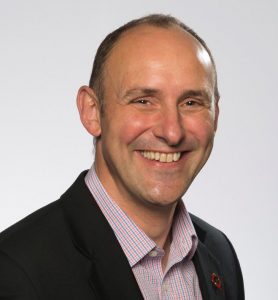 Tony Roberts
Tony Roberts
Patient Safety Collaborative Programme Lead
AHSN NENC
Tony joined the AHSN NENC in June 2014 to help set up the Patient Safety Collaborative and has been the Patient Safety lead since that time. He is also a Deputy Director (Clinical Effectiveness) at South Tees Hospitals NHS Foundation Trust and Deputy Director of the North East Quality Observatory Service (NEQOS).
Tony has been working on Quality Improvement since 1998 and is particularity interested in hospital mortality and the time-sensitive conditions, like heart attack, stroke, hip fracture, sepsis, community acquired pneumonia, acute kidney injury, venous thromboembolism and frailty that cause the highest volumes of deaths in hospitals. The requirements placed on the NHS from March 2017 to learn from deaths in care are especially important and Tony was closely involved in setting up the first Medical Examiner service in the North East and North Cumbria.
His background is in NHS measurement, Health Services Research, Epidemiology and Statistical Process Control.
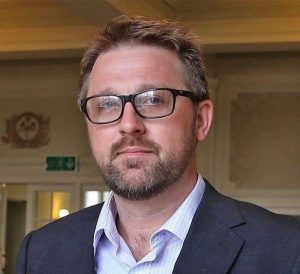 James Titcombe OBE
James Titcombe OBE
James is a former Project Manager in the Nuclear Industry. His life changed when his son Joshua died at Furness General Hospital. James led an extensive campaign, which finally resulted in the Morecambe Bay Inquiry, and a subsequent national review of maternity services. James has formerly worked as the National Advisor for Safety, Quality and Culture with the Care Quality Commission and was a member of the government’s expert advisory group set up to help establish the Healthcare Safety Investigations Branch. James currently works in a part time capacity for Baby Lifeline, a charity supporting improvement work in maternity services across the UK and as a self-employed patient safety consultant.
Professor Paul Bowie
Safety Scientist, Medical Educator and Chartered Ergonomist and Human Factors Specialist
NHS Education for Scotland
 Paul is a Safety Scientist, Medical Educator and Chartered Ergonomist and Human Factors specialist with NHS Education for Scotland based in Glasgow, where he is Programme Director (Safety & Improvement) and leads the Safety, Skills and Improvement Research Collaborative (SKIRC). He has worked in the National Health Service in Scotland for over 25 years in a range of quality and safety advisory roles.
Paul is a Safety Scientist, Medical Educator and Chartered Ergonomist and Human Factors specialist with NHS Education for Scotland based in Glasgow, where he is Programme Director (Safety & Improvement) and leads the Safety, Skills and Improvement Research Collaborative (SKIRC). He has worked in the National Health Service in Scotland for over 25 years in a range of quality and safety advisory roles.
He gained his doctorate in significant event analysis from the University of Glasgow in 2004 and has published over 120 papers on healthcare quality and safety in international peer-reviewed journals and co-edited a book on safety and improvement. Paul is also Honorary Professor and a PhD supervisor/examiner in the Institute of Health and Wellbeing at the University of Glasgow. He is Honorary Fellow of the Royal College of Physicians of Edinburgh and the Royal College of General Practitioners, and a Chartered Member of the UK Institute of Ergonomics and Human Factors.
Dr Dave Murray
Consultant Anaesthetist
James Cook University Hospital
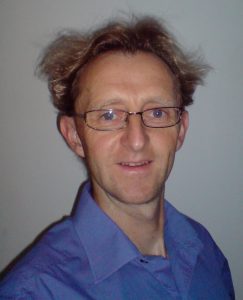 Dr Dave Murray has been a consultant anaesthetist at James Cook University Hospital in Middlesbrough since 2003. He has a long held interest in patient safety and Human Factors, is a founding member of the Clinical Human Factors Group, an Associate member of the Chartered Institute of Ergonomics and Human Factors, and is Associate Dean & Human Factors Faculty Lead for Health Education England North East. and is the Human Factors faculty lead for Health Education England North East. He also has a Masters in Medical Education.
Dr Dave Murray has been a consultant anaesthetist at James Cook University Hospital in Middlesbrough since 2003. He has a long held interest in patient safety and Human Factors, is a founding member of the Clinical Human Factors Group, an Associate member of the Chartered Institute of Ergonomics and Human Factors, and is Associate Dean & Human Factors Faculty Lead for Health Education England North East. and is the Human Factors faculty lead for Health Education England North East. He also has a Masters in Medical Education.
He established the NHS Emergency Laparotomy Network in 2010, and led the development of the National Emergency Laparotomy Audit (NELA) with the Healthcare Quality Improvement Partnership (HQIP). He was the National Clinical lead for NELA from 2012-2017, and is now Project Chair.
When is not working, he competes in triathlons, and has represented Great Britain several times within his Age Group at the European Long Distance Duathlon Championships, and the World Long Course Triathlon Championships.
 Dr Dawn Benson
Dr Dawn Benson
Sociologist: Human Factors & Investigation Science
Dawn is a sociologist who specialises in human factors and investigation science. Much of her work has been in academia as a researcher and lecturer within health and social care. After undertaking research with families of birth injured infants she developed the concept of ‘high reliability parenting’ and ‘patients and families as sense-makers’ in the process of learning from avoidable harm. In 2018 she joining the Healthcare Safety Investigation Branch in England, where she is a national investigator.
Dawn has worked at a number of universities in both social and medical sciences. She currently maintains an honorary Position at the University of Oxford Patient Safety Academy (PSA) where she lectures and researches healthcare investigation and human factors. Specifically, she continues to support the PSA in their work with the General Medical Council embedding human factors approaches into their fitness to practice process.
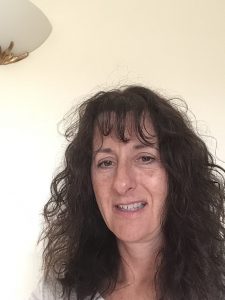 Debbie Bunford: Senior lecturer in Midwifery and PhD student.
Debbie Bunford: Senior lecturer in Midwifery and PhD student.
Debbie currently works as a Midwifery lecturer at Teesside University, with a particular interest in leadership and management. Prior to academia, she worked as a Head of Midwifery/ Divisional Manager in Womens’ and Childrens’ service; held the Senior Nurse role on the Clinical Commissioning Group board and has worked as a clinical midwife both within the UK and abroad.
Debbie is currently in the 3rd year of her part time PhD, studying the attributes of a good delivery suite coordinator from the perspective of the MDT and the impact excellent delivery suite coordinators have on delivery suite teams and team working. She has recently published an article ‘How delivery suite co-ordinators create situational awareness in the multidisciplinary team’ in the British Journal of Midwifery.
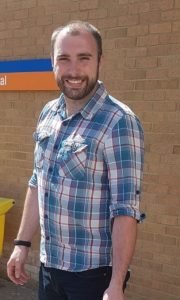 Anthony Michael Garbutt
Anthony Michael Garbutt
Senior Lecturer in Adult Nursing
Northumbria University
Anthony Garbutt is a Senior Lecturer in Adult Nursing at Northumbria University, Newcastle. He delivers teaching across both undergraduate and postgraduate courses, specialising in cardiothoracic, intraoperative and Advanced Clinical Practice. Anthony has lead multiple patient safety and improvement initiatives prior to taking up an academic role and is currently a PhD candidate, passionately interested in professional wellbeing in acute care settings. Inspiration comes from his own family, influencing a successful and effective ‘work-family’ philosophy.
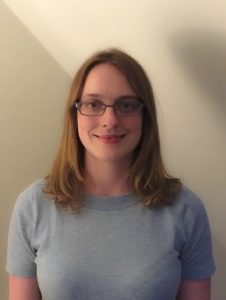 Dr Katherine Williamson
Dr Katherine Williamson
Associate Dean, HEE North East & North Cumbria Simulation Lead, Royal College of Emergency Medicine Leadership Programme Simulation Lead for North East & North Cumbria Consultant in Emergency Medicine, North Tees & Hartlepool NHS Foundation Trust
Kate grew up in the North East of England and having qualified as a doctor from University of Birmingham moved back after completing her foundation programme to commence training in Emergency Medicine. Her interest in medical education and in particular simulation started in Birmingham with her involvement with undergraduate teaching, continuing with the completion of the Certificate in Medical Education during her training in 2010 and Diploma in Medical Education in 2015 at Newcastle University. In 2013 she took on the role of the North East regional simulation lead for the Royal College of Emergency Medicine and established a simulation programme across all training years for Acute School. Kate organised and chaired a number of multidisciplinary regional simulation interest meetings lead to the launch of the North East Simulation Network website in June 2014. In March 2015 she was officially appointed as the HEE NE Clinical Simulation Network Lead as part of the Faculty of Patient Safety. Kate is a founding member of the Association for Simulation in Practice in Healthcare Emergency Medicine and Prehospital Specialist Interest Group as well as a representative for the North East on the HEE Simulation Reference Group.
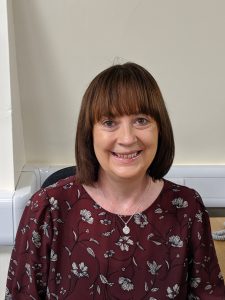 Anne Marie Troy-Smith
Anne Marie Troy-Smith
Quality Development Manager
The Newcastle upon Tyne Hospitals NHS Foundation Trust
Anne is currently working in the Clinical Governance and Risk Department at The Newcastle upon Tyne Hospitals NHS Foundation Trust. Prior to this post she worked within the same Trust as a Care Pathway Co-Ordinator with cross site responsibility for Pathway development, implementation and evaluation. Anne trained as a Registered General Nurse in London and worked in a variety of settings including medicine, cardiology and surgery, the main part of time in London was spent at the Hammersmith Hospital managing acute medical settings encompassing a variety of challenging conditions within the specialities of endocrinology, respiratory medicine, acute stroke care and the management of an acute admissions unit.
Dr Emma Lim
 Emma Lim is a Consultant in General Paediatrics and Paediatric Infectious Diseases and Immunology at the Great North Children’s Hospital in Newcastle upon Tyne and Paediatric Sepsis Lead for the trust. She has worked regionally and nationally with the Academic Health Science Network, and the Sepsis Trust to increase awareness and develop sepsis pathways. She is an investigator in the EU PERFORM Horizon 2020 study to improve management of febrile patients and is the course lead for the RCPCH How to Manage: Paediatric Sepsis series.
Emma Lim is a Consultant in General Paediatrics and Paediatric Infectious Diseases and Immunology at the Great North Children’s Hospital in Newcastle upon Tyne and Paediatric Sepsis Lead for the trust. She has worked regionally and nationally with the Academic Health Science Network, and the Sepsis Trust to increase awareness and develop sepsis pathways. She is an investigator in the EU PERFORM Horizon 2020 study to improve management of febrile patients and is the course lead for the RCPCH How to Manage: Paediatric Sepsis series.
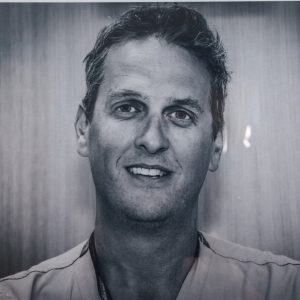 Will Peat
Will Peat
Harrogate and District NHS Foundation Trust
Will has been an NHS consultant for 8 years in Harrogate. He has had various educational roles but for the last 5 years have been trying to understand and push Human factors and ergonomics.
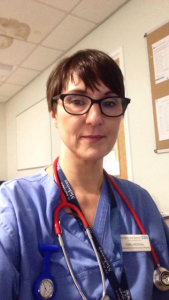 Kate McClune
Kate McClune
Kate is an experienced midwife who continues to improve her practice by teaching and learning to improve the care of mothers and their babies under her care.
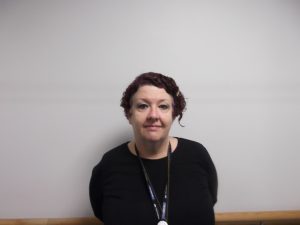 Bev Curtis
Bev Curtis
Harrogate District General (Harrogate Human Factors Journey
Bev’s current role as Medical Devices Safety Officer MDSO) is a developing one. It encompasses her experience in previous posts as Medical Devices Trainer for the hospital, where she trained staff on the general principles of medical devices, plus direct training in the use of infusion devices. She also trains staff on IV Drug Administration. In addition, Bev manages the hospital equipment library and the staff involved.
New additions to Bev’s role as MDSO include sitting on several groups to provide an overview of device safety. These include Medical Gas Committee, Point of Care Testing, Decontamination Committee, Medication Safety Review Group, Senior Nurse Group, Providing a Safe Environment Steering Group and the Equipment Group. Bev also leads on the advisory groups for procurement of medical devices and monitors all equipment related incidents.
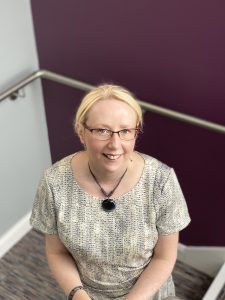
Julia Wood
NENC Maternal and Neonatal Health Safety Collaborative Lead
AHSN NENC
Julia has worked for the NHS since 1987. For the past 15 years her career has focused on supporting health and social care organisations improve their services by using quality improvement methodologies, tools, and techniques, with the purpose of improving the services they provide to patients.
Julia has had the opportunity to work with organisations at a national level (Department of Health and National Primary Care Development Team), regionally (AQuA [Advancing Quality Alliance]), and also within many other organisations spanning acute, community and primary care settings, as well as CCGs and social services.
Currently Julia is the Maternal and Neonatal Health Safety Collaborative Lead for the AHSN for North East and North Cumbria.
Throughout her career Julia has continued to develop her skills and expertise, and is a Lean Practitioner, educated to MBA level, and most recently completed a Postgraduate Certificate in Innovation and Improvement Science.
Please make a member of the event team aware if you do not wish to have your photograph taken during the course of this event or appear in film footage. Photographs and film footage could appear on social media and websites
The full address of The Durham Centre is: The Durham Centre, Belmont Industrial Estate, Durham, DH1 1TN
From the A1(M):
- Exit A1(M) at Junction 62, signposted Sunderland, Durham (A690), Consett (A691)
- At roundabout, take exit signposted Durham (A690), Consett (A691)
- Leave A690 at first exit, signposted Belmont, Dragonville, Karting Centre
- At Junction, turn left, signposted Belmont, Dragonville
- At traffic lights, turn left, signposted Belmont Business Park, Belmont Industrial Estate
- Continue for 1/2 mile, turn left into Belmont Industrial Estate
- At junction, turn left
- The Durham Centre is on your right
Free parking is available at the venue and there is an overflow car park.
The distance from Durham Train Station is 2.8 miles.
The Durham Centre supports the local foodbank, if you would like to donate, we can collect at the registration desk. Over 90% of the food distributed by foodbanks in The Trussell Trust network is donated by the public – that’s why your food donations are absolutely vital to their ability to give everyone referred to Foodbank a balanced and nutritious three day supply of food.
